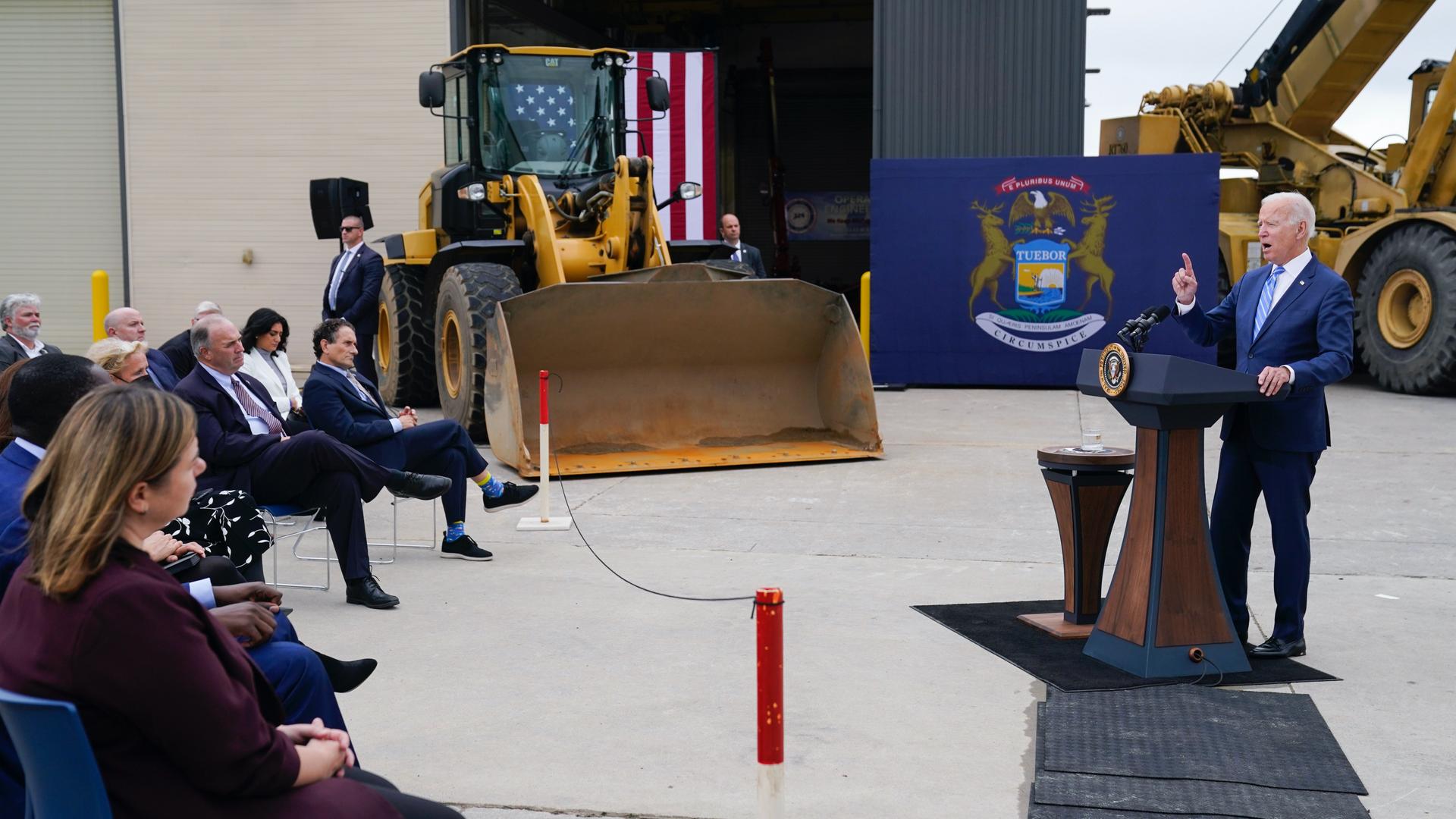US credibility on climate on the line in Washington
The biggest climate change legislation ever proposed in the US is in limbo, and its fate will have far-ranging effects on global climate and diplomacy at an upcoming UN climate summit.
After a House vote on the $1-trillion infrastructure bill was scuttled last week, President Joe Biden was on the road in Michigan on Tuesday trying to garner support for the legislation and a paired $3.5 trillion, 10-year budget package.
Related: Winegrowers in France experiment with hybrid grape varieties to combat climate change
The pair of bills boost spending on the social safety net, health and environmental programs in addition to infrastructure.
They contain billions of dollars for programs aimed at combating climate change, including tax credits for new renewable energy plants, electric vehicles and energy efficiency. A major new initiative, the Clean Electricity Performance Program, would pay utilities to buy more clean energy, and money is also included to incentivize farmers and foresters to sequester greenhouse gases on their lands.
The legislation is designed to help the US meet its targets set under the Paris climate accord to cut greenhouse gas emissions in half by the end of the decade.
One estimate from the Rhodium Group, an independent research firm, found that the big-ticket climate programs in the most expansive version of the legislation would slash nearly a billion tons of emissions by 2030.
“That’s roughly the same as taking every single vehicle off of America’s roads permanently,” said John Larsen, a director at Rhodium. “It’s roughly the same as all the emissions from Russia.”
Programs outlined in the bills would not be enough to meet US climate agreement targets “but it would be a huge step forward,” Larsen said.
Proposed line items are unlikely to remain their current size for long. The larger spending bill is now being “chiseled back to $2 trillion” in Capitol Hill negotiations, according to The Associated Press, and final approval of the Senate’s $1 trillion infrastructure bill is on hold.
Related: Glasgow climate talks: Africa negotiators mobilize for climate finance
Passage of legislation that enshrines greenhouse gas emission reductions into law before the UN climate summit in November is seen as key to giving US officials negotiating power.
“This is the time, this is the place, this is the Congress that must finally pass the legislation that makes the United States the leader, so that we can say to the rest of the world it is time for all of us to deal with this existential crisis,” Massachusetts Sen. Ed Markey said in remarks online last week.
At the UN climate summit in Glasgow, US negotiators led by climate envoy John Kerry will be trying to win more ambitious commitments from countries including India and China.
Tomas Anker Christensen, Denmark’s climate ambassador, said in the last diplomatic push ahead of the summit, all eyes are on the world’s biggest emitters.
“People are looking at both, what are the large economies committing in terms of targets, but also, what plans do they have in place to actually achieve them,” Christensen said.
Christensen said a package of climate legislation is winding through the EU system. India and China are in internal deliberations about their domestic efforts.
“And I think the package that is going through Congress is the kind of legislation that will allow the US to deliver on the commitments made,” Christensen said.
The stronger the domestic legislation or framework for cutting carbon emissions, Christensen said, the more credible a country’s targets will seem, which would contribute to a successful outcome at the Glasgow meeting.
“The more we show we can get there, the better,” Christensen said.
This credibility is key for all countries, but perhaps especially for the US, which has a history in climate talks of going back on its word.
“Climate policy is littered with examples of where the US Congress has been at cross-purposes with the US administration trying to lead the world in international cooperation in cutting emissions.”
“Climate policy is littered with examples of where the US Congress has been at cross-purposes with the US administration trying to lead the world in international cooperation in cutting emissions,” said Claire Healy, who works on trans-Atlantic cooperation as the director of the Washington office of the climate change think tank E3G.
Healy points to the Kyoto Protocol, which the US signed in 1998 but that the Senate never ratified. The climate pact ultimately failed.
Related: Southern Spain’s green-belt project aims to stave off impending desertification
“You can also point to the Paris agreement. I mean what could be achieved in the Paris framework was very much determined by what could get through Congress,” Healy said.
The bulk of the Paris agreement is not legally binding because that would have required congressional ratification.
Given this history, major climate legislation passing before the Glasgow summit would show that Congress is on board with the president this time around.
“If the US shows up without this package, this deal done, its credibility is even more diminished,” Healy said.
We want to hear your feedback so we can keep improving our website, theworld.org. Please fill out this quick survey and let us know your thoughts (your answers will be anonymous). Thanks for your time!
